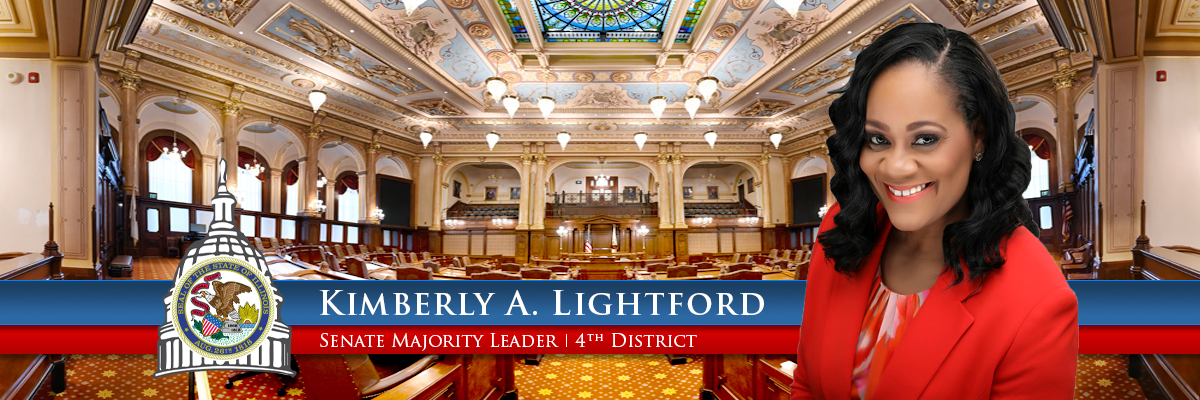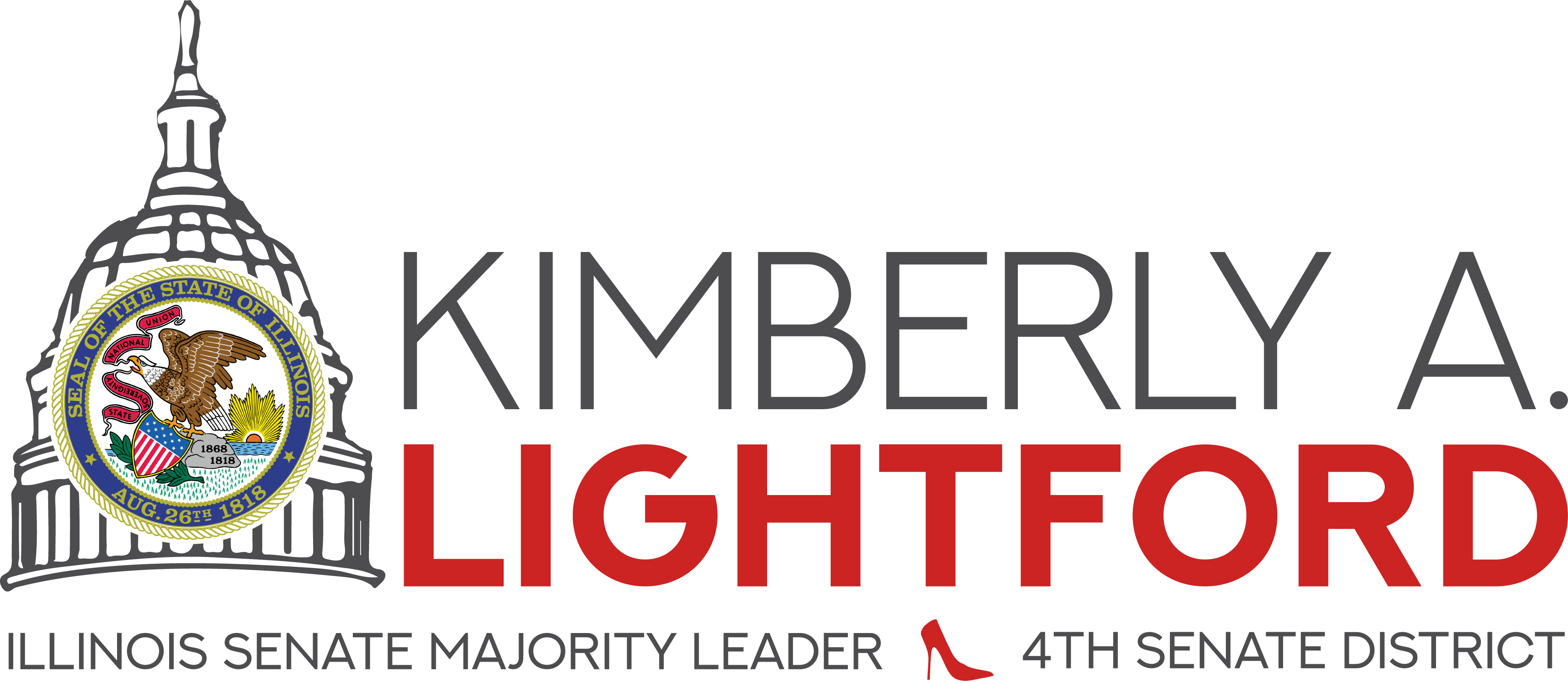- Details
- Category: News
 CHICAGO – Senate Majority Leader and Illinois Legislative Black Caucus Chair Kimberly A. Lightford (D-Maywood) is backing Gov. JB Pritzker’s efforts to expand COVID-19 testing in African-American and other minority communities across Illinois.
CHICAGO – Senate Majority Leader and Illinois Legislative Black Caucus Chair Kimberly A. Lightford (D-Maywood) is backing Gov. JB Pritzker’s efforts to expand COVID-19 testing in African-American and other minority communities across Illinois.
“Governor Pritzker’s leadership has been incredible throughout this devastating crisis,” Lightford said. “His announcement today shows his commitment to people from every part of our state, and the Illinois Legislative Black Caucus will continue to work alongside him to support his efforts.”
When the COVID-19 outbreak started, the ILBC developed concerns about the effects this pandemic would have on Black communities. Those concerns were validated on Monday when Chicago Mayor Lori Lightfoot brought attention to racial disparities in the number of deaths due to coronavirus, pointing out that 72% of the city’s fatalities were African-Americans. She was one of the first government leaders to address the “death gap,” a topic now being discussed across the nation and world.
“I was floored by Mayor Lightfoot’s data,” Lightford said. “I knew the disparities were there, but when they are reflected in number of deaths, it is never easy to digest. I am grateful for Mayor Lightfoot’s leadership in responding to this pandemic, and for taking action to address health care disparities.”
- Details
- Category: News
Note that the federal government has passed a law extending unemployment benefits to individuals who do not normally qualify, such as the self-employed and freelancers. For example, if you drive for Uber or Lyft or run your own small business, you will likely qualify. This expansion is not fully implemented yet, and more information will be posted when the program is available.
To learn more about unemployment compensation, visit the Department of Employment Security’s website. It is experiencing heavier than usual traffic right now, so if it’s down when you try to visit, check back later. The state is taking steps to increase the website’s bandwidth, and we need your patience in this unprecedented time.
IDES is now implementing a new alphabetized schedule to help reduce wait times for claims filed both online and over the phone. The day or time of day you call will not affect whether you receive benefits or your benefit amount. The schedules are as follows:
Online Filing Schedule
• People with last names A-M are asked to file claims on Sundays, Tuesdays or Thursdays.
• People with last names N-Z are asked to file claims on Mondays, Wednesdays and Fridays.
• Saturdays are available for those who are unable to file during their allotted time.
Call Center Filing Schedule
• People with last names A-M are asked to file claims on Tuesdays and Thursdays between 7:30 a.m. and 6:00 p.m.
• People with last names N-Z are asked to file claims on Mondays and Wednesdays between 7:30 a.m. and 6:00 p.m.
• Fridays from 7:30 a.m. to 6:00 p.m. will be reserved for those who are unable to file during their allotted time.
You can file your unemployment insurance claim online here. To file your claim over the phone, you can call 1-800-244-5631.
Please make sure you have all the necessary documentation available before placing a call.
- Details
- Category: News
Nicor Gas offers grants as a part of their charitable giving. They focus on basic human needs and energy assistance, community enrichment, diversity, education and environmental stewardship. For more information visit their website at: https://www.nicorgas.com/company/about-us/philanthropy/charitable-giving.html.
Applications must include:
• A brief background of the organization (two pages or less) and its Board membership list.
• The organization's mission statement.
• A legible and most recent copy of the organization's 501(c)(3) tax-exempt letter.
• A clear statement of the project for which funds are needed.
• The amount the organization requests for the project.
• Sources of other support for the project and current financial statement of the organization.
- Details
- Category: News
 CHICAGO – Protecting vulnerable populations during the COVID-19 pandemic, Senate Majority Leader Kimberly A. Lightford (D-Maywood) joins the Illinois Department of Human Services in announcing a $1.2 million plan to increase the capacity of its current statewide network of services for domestic violence and sexual assault survivors.
CHICAGO – Protecting vulnerable populations during the COVID-19 pandemic, Senate Majority Leader Kimberly A. Lightford (D-Maywood) joins the Illinois Department of Human Services in announcing a $1.2 million plan to increase the capacity of its current statewide network of services for domestic violence and sexual assault survivors.
“Escaping a dangerous and frightening situation at home is never easy, and our current circumstances make it even harder,” Lightford said. “It is so important that Governor Pritzker and IDHS are expanding services to make sure there is a safety net for survivors.”
The plan expands the role of the Domestic Violence Helpline by creating a one-stop access point for shelter needs. Survivors may call the Helpline directly at 1-877-TO END DV (1-877-863-6338 voice or 1-877-863-6339 TTY) and be connected to shelter through existing Domestic Violence Prevention and Intervention shelter services or to emergency shelter through available hotels and motels. Survivors may also contact their local domestic violence programs for shelter assistance.
More Articles …
Page 53 of 129







